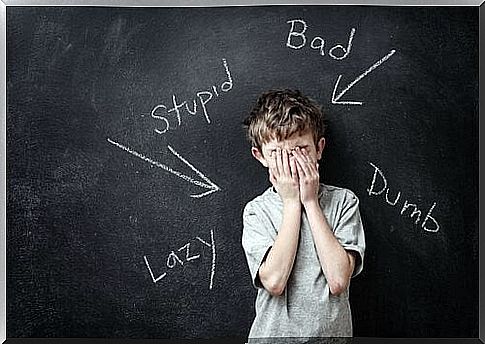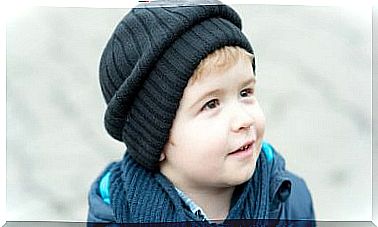How Does The Family Affect Children’s Self-esteem?

The family is the first nucleus to which everyone is exposed. Therefore, it plays an important role in the development of a child’s skills and perception.
In this article, we will analyze how the family affects children’s self – esteem, which refers to the image we have of ourselves.
As a concept, self-esteem refers to someone’s self-esteem. Self-esteem depends on several aspects, such as self-evaluation and the feedback we receive from others.
In the latter, the family is one of the most important. This is where the child receives their first feedback on their qualities and actions (at least until school starts). The feedback they receive will have a huge impact on their self-esteem.
Therefore, the family can either encourage or harm children’s self-esteem. Even small gestures or comments that go unnoticed can have an impact on their self-esteem.
Factors affecting children’s self-esteem
There are certain aspects we can consider as cornerstones of self-esteem: physical appearance, behavior, and academic and athletic performance. Parents should be very careful when reviewing these topics with their children.
Here are some healthy practices:
- Avoid comparisons with other children
- Explain that appearance is not the most important thing to offer
- teach them the benefits of good behavior
Positive practice that promotes a child’s self-esteem
Here are some tips that every family should keep in mind so that they can encourage a healthy development of children’s self-esteem:
-
Transfer trust and affection
A child who feels loved and valued will reflect this in his self-esteem. It is important that you express your confidence in what they can achieve.
If you prevent them from performing an activity because “they will not be able to perform it”, then you will limit their self-confidence.
You also transfer the value of the effort. In other words, teach them that with effort and dedication, all their goals can be achieved.
This should be done in the short run to maintain their enthusiasm. In the long run, it will teach them the importance of perseverance.

-
Let them try and fail if necessary
Children who do nothing at all on their own will end up having self-esteem issues. As we have mentioned before, it suggests that we do not trust them if we never let them try, even if they are wrong on it.
So, how will the child assess their qualities and qualities if, throughout their childhood, they have not been able to achieve anything on their own? This is a clear example of how small daily actions can have consequences for the future.
-
Encourage dedication
You should motivate them to improve, without forcing them to win or stand out. This applies to all areas.
A child needs to learn that the value of dedication will be a great tool for the rest of their lives.
-
Appreciate their opinion and let them participate
If you never listen to your child, or consult with them when making decisions, it can have negative effects on their self-esteem. Ask them how they feel, what they think, and what they would like to do each time you make a decision.
They should also be able to choose which sport they would like to practice and what additional courses they would like to take. If they are not allowed to make these decisions, the children will not have a positive image of themselves because they will feel that their opinion does not matter.
Things that should be avoided to promote good self-esteem
Since we have already talked about things we should do, it is also worth mentioning some typical mistakes that can negatively affect a child’s self-esteem. Here are a few examples:
- Overprotection: This type of parenting reflects the child’s insecurities. It can have consequences such as shyness, addiction, introvertedness, insecurity and lack of self-confidence.
- Minimize Achievements: Appreciate the goals they have achieved. Do not say that something is “very easy” when they can not do it. You will attack their self-esteem on two fronts.
- Solve all their problems: If you do this, you will not allow them to develop skills to overcome challenges on their own. It can even result in them feeling unable to overcome obstacles that get in their way.

Finally, we must make it clear that “determinism” does not exist. While all of the above things are essential according to the formation of children’s self – esteem, there are also ways to reverse the consequences by promoting the value of their virtues.
Of course, this process will have better results if it begins in their childhood.









